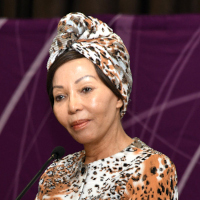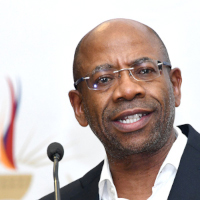College of Human Sciences
Unisan shares expertise at international psychology gathering
Dr Wandile Fundo Tsabedze from the Department of Psychology recently attended the International Positive Psychology Association’s (IPPA’s) 8th World Congress on Positive Psychology in Vancouver, Canada.
Positive psychology studies the conditions that contribute to the optimal functioning of people, groups and institutions.

Dr Fundo Wandile Tsabedze attending the 8th World Congress on Positive Psychology
Scholars from around the world presented different topics in posters, workshops, plenary panels, keynote addresses, symposia, panel discussions and peer-reviewed podiums. The congress is about coming together to advance the science and research-based applications of positive psychology, foster collaboration between researchers, teachers, students and practitioners, and share the findings of our field with the broadest audience.
Tsabedze, a postdoctoral fellow presented two papers authored with other scholars, including, Dr Curwyn Mapaling from the University of Johannesburg. The titles of the projects are: “Covid-19 adjustment and well-being of the incarcerated population in Kgosi Mampuru II and Polokwane correctional centres: An exploratory sequential mixed-method study work collaboratively with other scholars on these projects” and “You don’t necessarily feel like you belong there: Understanding belonging and social connectedness among engineering students in South Africa”.
Tsabedze says his highlight during the conference was meeting Dr Martin Seligman, "the father of positive psychology". "It was an honour engaging with a person of such calibre and I can only express my gratitude to my department and the College of Human Sciences for granting me the opportunity to attend the conference and acquire the knowledge from various scholars."

Dr Tsabedze engaging with Dr Martin Seligman
Aside from being involved in the teaching and learning of undergraduates and postgraduates at Unisa, Tsabedze is also involved in the engaged scholarship project, the Inside-Out Corrections Interest Group. His project is titled "Covid-19 adjustment and well-being of the incarcerated population in Kgosi Mampuru II and Polokwane correctional centres: An exploratory sequential mixed-method study".
Explains Tsabedze: "My mentor, Professor Eduard Fourie, and I are working towards assisting in developing effective educational intervention programmes to enhance offenders' well-being." In addition, he says they are working towards alerting the government to the need for improving correctional centres' infrastructure and human resources to prepare for future pandemics such as Covid-19. Included is informing policymakers about the adjustment and well-being of the incarcerated population during pandemics.
Tsabedze hopes to develop his research skills in the academic space, and collaborate with different scholars around the world in research which covers social problems, specifically in corrections.
* By Nnana Jege, Communication and Marketing Specialist, College of Human Sciences
Publish date: 2023/11/27

 Unisa co-hosts G20 community outreach in the Eastern Cape
Unisa co-hosts G20 community outreach in the Eastern Cape
 Unisans gain membership of prestigious science academies
Unisans gain membership of prestigious science academies
 Advocating for disability transformation through servant leadership
Advocating for disability transformation through servant leadership
 Unisa Press continues to illuminate the publishing space
Unisa Press continues to illuminate the publishing space